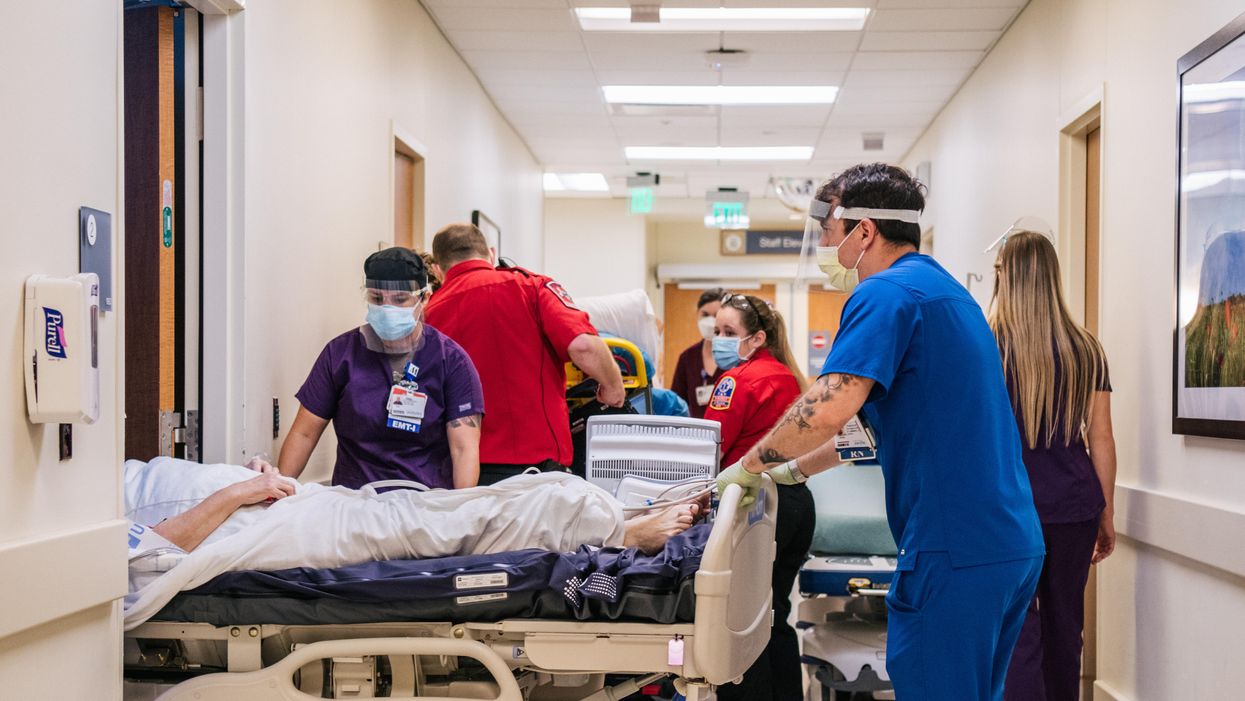In honor of National Depression and Mental Health Screening Month, let's support our health care workers.
October is National Depression and Mental Health Screening month. Over the past year and a half, health care workers across the United States have tackled the Covid-19 pandemic on the frontlines day after day. They have cared for those we love with empathy, compassion and lifesaving critical skills. They are taking care of us — but who is taking care of them?
Our health care professionals have been tirelessly working under nearly impossible and unsustainable levels of stress to keep their communities safe, and it's taking a toll. In a recent study of frontline health care workers, 55 percent have self-reported burnout, and 62 percent say the pandemic has had a negative impact on their mental health. Alarmingly, three in 10 health care workers have considered leaving their chosen profession altogether during this pandemic.
What's more, 41 percent of our health care workers are millennials, and they will continue to comprise the health care workforce for decades to come. And yet, national labor shortages are forcing fewer employees to shoulder more of the work: The American Nursing Association estimates a need for 1.1 million registered nurses in the U.S. by 2022. It is of paramount importance that we work to create a sustainable health care system that takes care of its workers — not just to ensure great outcomes for patients, but also to retain and attract the hardworking health care staff we depend on.
Amidst staggering numbers of hospital admissions and new Covid-19 cases, our health care infrastructure is at a critical point: Our health care workers are in desperate need of support. The good news is that each of us can make a difference, today. In observance of National Depression and Mental Health Screening Month, here's how you can help:.
- Recognize their efforts and sacrifice. First and foremost, thank them for their service. Whether this is on a personal level by checking in with friends and family who work in health care, or on a macro level by organizing community events to share their critical needs and perspectives from the frontlines, providing space to let them share what they have seen and are experiencing can be critical.
- Build trust with one another by listening to the advice of our trusted medical professionals. They've devoted years of training, studying and practice to fulfill the call for a cause bigger than themselves.
- Find the resources those working in health care ask for. Does your friend need help finding a therapist? Does your local hospital need more volunteers? Does your city need more contact tracers? There are lots of ways to help those on the frontlines without having formal medical training.
The effects of doing this work now will be long lasting. Young people are at the beginning of their careers, with so much possibility and talent. It is in our best interest to create a culture of support — especially as it relates to mental health — in the workplace for these early professionals so they can continue to grow into the leaders and pioneers that make America, well, America. If we act now, we can do more than just guard against future workforce shortages. We can instill a culture of support, empathy, and care — for everyone in the health care system.




















Trump & Hegseth gave Mark Kelly a huge 2028 gift